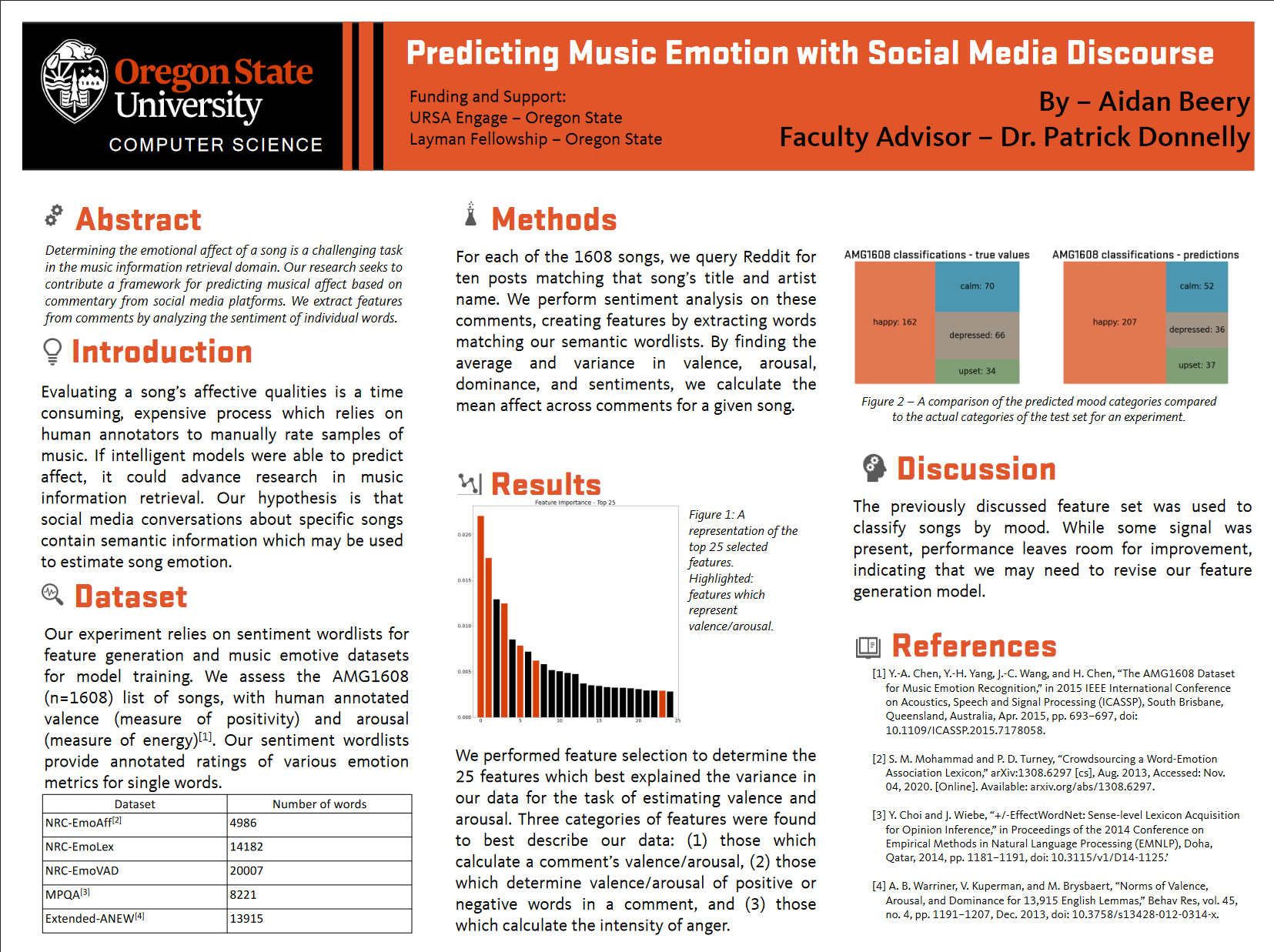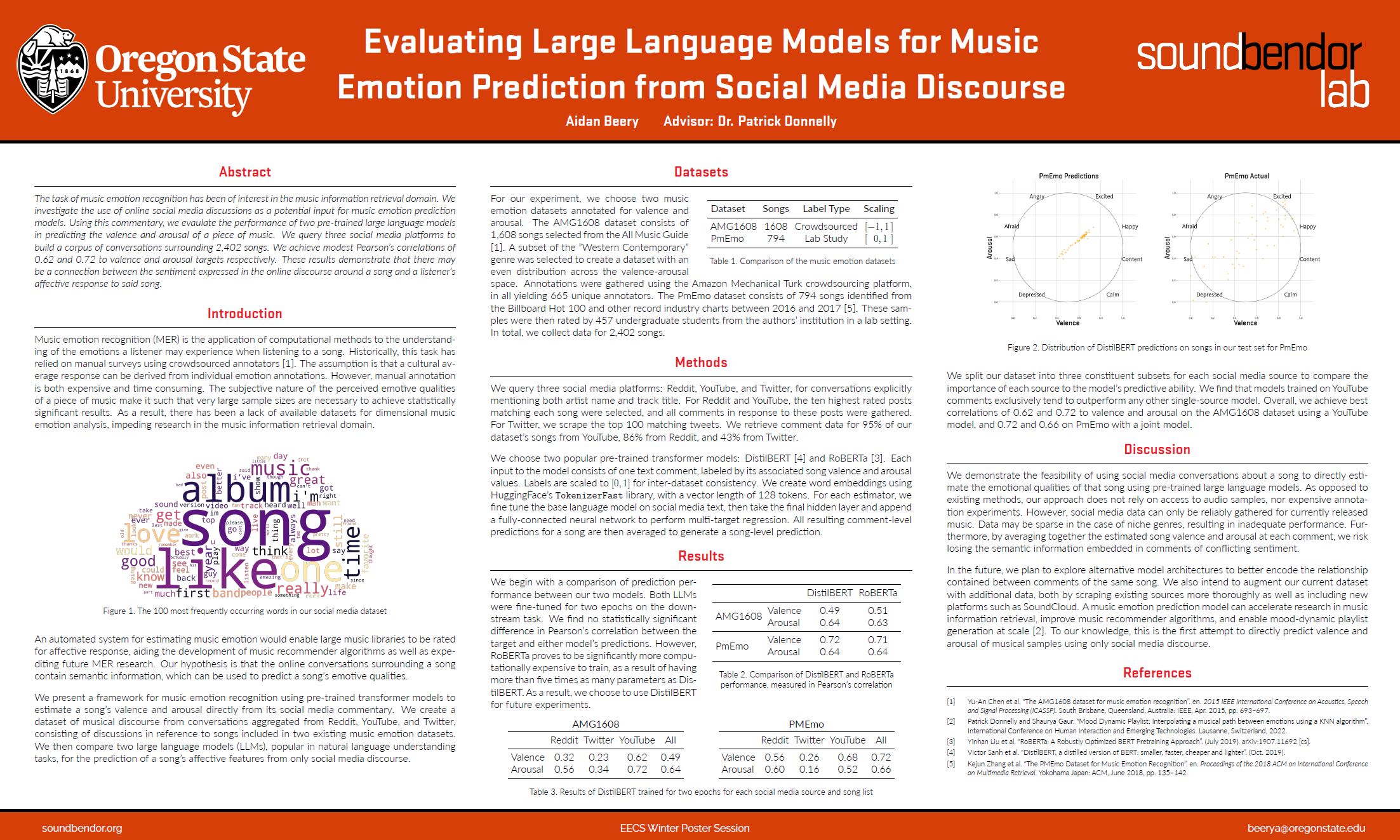Music Sentiment Analysis
Assessing the affective quality of a piece of music is a difficult task, generally relying on expensive surveys to collect user annotations on how they feel about a given song. Determining these emotional ratings is a task of interest to the music information retrieval community, as such information enables the development of better music recommender systems towards the goal enabling automatic music therapy solutions.As such, prior works including AMG1608, PmEmo, and DEAM provide musical samples manually annotated for valence (happiness) and arousal (energy) characteristics. In their 2018 paper, Deezer sought to automate this process, using NLP analysis of song lyrics and analysis of acoustic features to predict music valence and arousal. We look to expand on this work by using social media conversations to predict music affect.
In 2021, we presented preliminary findings at NCUR. Our initial approach at this learning task relied on parsing these comments using existing word affect and valence/arousal dictionaries like the work presented by Warriner et. al. and generating summary statistics based on the aggregate total of valence/arousal words in a comment to create a feature space. This yielded modest performance towards the task of music emotion recognition, and demonstrated the feasibility of estimating dimensional music emotion targets without relying on acoustic features.

Improving upon this statistical approach, we use BERT, a pre-trained language model, to extract semantic information from our social media discourse. We train our model on a dataset of over 11.8 million comments across Reddit, YouTube, and Twitter, each of which relates to one of 19,627 songs. We achieve state-of-the-art performance on music valence/arousal prediction without relying on often-copyrighted acoustic data.

You can find more information on our experiments and results in our paper here
This work was supervised by Dr. Patrick Donnelly at Soundbendor Lab, Oregon State University.
Part of this work was completed in fufillment of the Honors Thesis requirements at Oregon State. You can find my undergraduate thesis publication here
